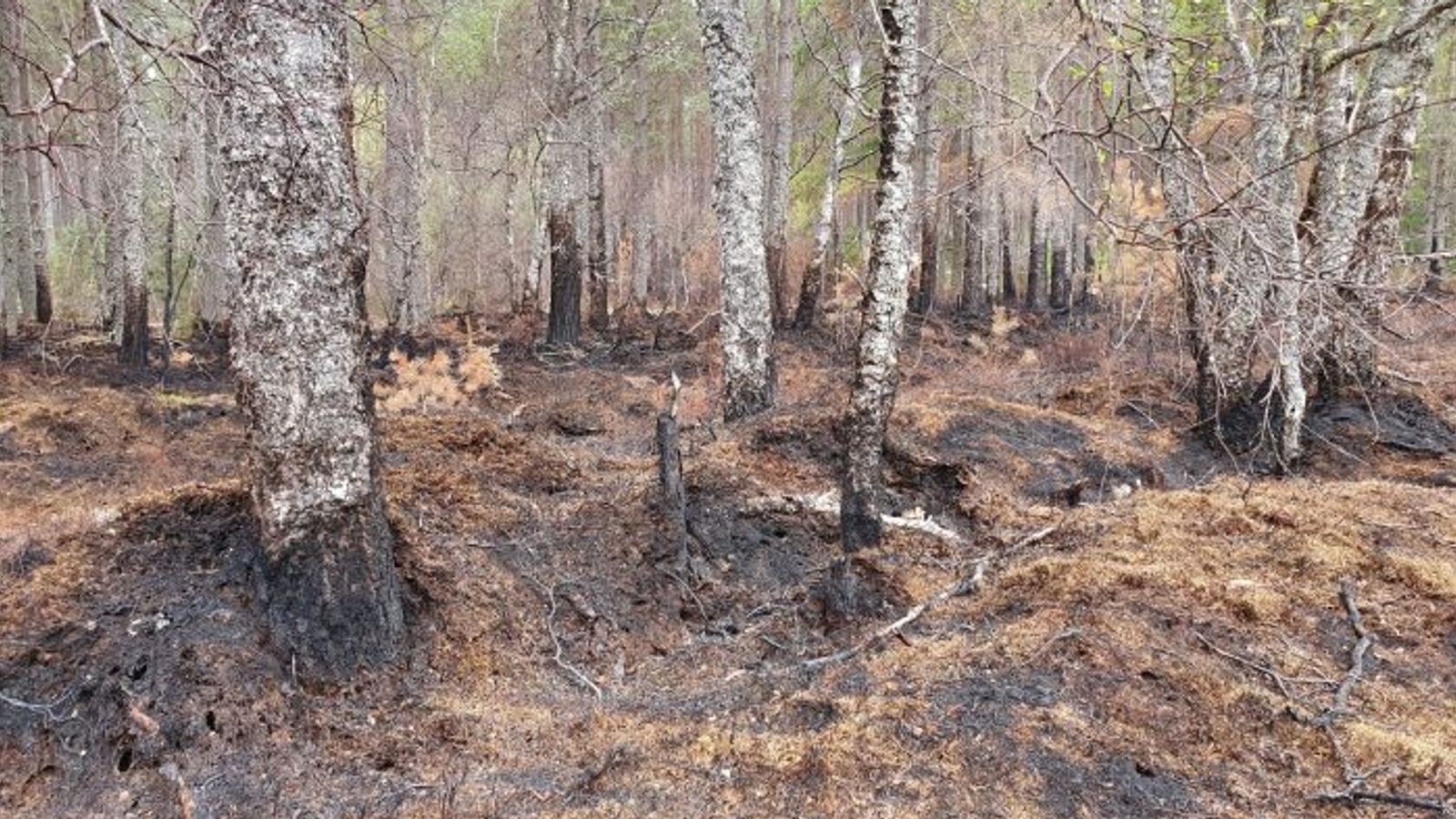A ban on campfires is being considered by Cairngorms National Park.
Public views are going to be sought on whether stricter controls are needed.
Three potential options are being put forward in an attempt to reduce the risk of wildfires, which can harm people and devastate woodland and wildlife.
In a report to its board, the Cairngorms National Park Authority (CNPA) warned that the “changing climate” will make the risk of wildfires “considerably higher in the future”.
It noted that there have “already been a number of incidents” in the park this year, with “multiple expressions of community and land manager concern”.
The report also highlighted large wildfires elsewhere in Scotland, including near Daviot and Cannich in the Highlands.
Wildfires can start in several ways – including from natural causes such as lightning, visitors lighting campfires, or from muirburn that gets out of control.
Greenock primary school closed as police probe ‘unexplained’ death of man found seriously injured nearby
Caroline Glachan: Three on trial over 1996 murder of schoolgirl
Winter weather warning after man banned from the roads for driving with frozen windscreen and windows
Please use Chrome browser for a more accessible video player
On Friday, board members agreed to setting up a public consultation on three options:
• A year-round fire management byelaw to restrict fires with certain exceptions
• A time-limited fire management byelaw that would only apply at high-risk times
• No byelaw, but continue to develop a robust communications and education programme
Grant Moir, chief executive of CNPA, said: “Wildfire risk is increasing in Scotland and climate modelling shows a predicted increase in drought periods and we need to consider ways to reduce the risk to people, nature and property in the national park.”
Cairngorms National Park – the largest in the UK – is home to 19,000 people and welcomes about two million visitors a year.
It covers parts of the Highlands, Aberdeenshire, Moray, Angus and Perthshire.
The CNPA report said the park is home to more than half of Scotland’s semi-natural pine woodland, and a large wildfire “could be an ecological disaster and could impact significantly on people’s property and livelihoods”.
The consultation is expected to start in January and run for 10 weeks. Any potential byelaw is not expected to be introduced until at least 2025 after a further consultation and official go-aheads.
Be the first to get Breaking News
Install the Sky News app for free
Convener Sandy Bremner said residents, land managers, visitors and various partner organisations would be consulted.
Mr Bremner added: “We must protect our landscapes, wildlife and communities from the risk of harm from fires, so this is an important first step in that process.”






















